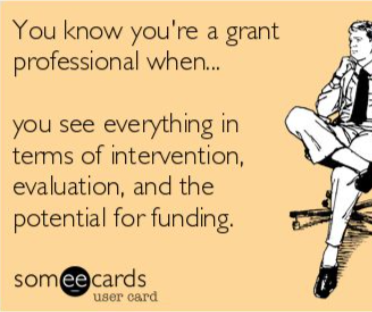
Keeping The Funder Honest
The power dynamic of the funder and fundee is often difficult to manage. The onus is usually on the organization being funded to make the relationship a good one. Nonprofit managers are advised to keep the relationship special and fresh. Development professionals are asked to keep grantors involved, engaged, and interested in the work being done. In addition to this, they are expected to send grantors regular reports full of accomplishments and results.
Yet, we know, relationships are not healthy if one person (or in this case, group) is doing most or all of the work to keep it alive. In any situation, relationships should be reciprocal. Everyone’s got to give a little.
Truth be told, we expect a lot from our funders in return – even though we don’t directly express it often, or get an opportunity to enforce any rules. We have come up with a list of unspoken rules non-profit managers have for funders. And who knows? Maybe a funder or two will read this and spread the word amongst their peers about the kinds of rules we wish they all followed…
- Funders should respond to requests for meetings, site visits, and conversations – remarkably, sometimes funders do not do this. It makes nonprofits feel like they are begging. By simply responding to requests (favorably or unfavorably – but always with politeness), funders establish a relationship based on mutual respect.
- Funders should give non-profits at least one year notice if their guidelines or priorities for funding are going to change. This gives non-profits enough time to make up for the lost income. It really takes at least a year to strategize around new funding opportunities. Relationships take time to cultivate and pursue. And while this should always be occurring within non-profits, time only helps when funding is going to be cut and is the best courtesy one can give to a non-profit.
- More and more donor advised funds are showing up and managing the charitable giving for wealthy individuals and families. As a result, it is becoming more difficult to pitch a mission or cause to new funders, because there is more anonymity to people’s giving. We understand the appeal of the anonymity; however, it deeply reinforces the power dynamic between funder and fundee. What we suggest – each donor advised fund should have a clear path for making pitches or sending proposals to fund managers. A healthy relationship between donor advised fund managers and non-profits can be forged – something more like the model of the New York Community Trust, through which nonprofits have a clear path to seeking funding, while donors are often kept anonymous and private. Without this, funders hold all the cards, and that is no fun and no fair.
- Funders should provide clear reasons for why they deny funding to an organization – this would enable the organization to take corrective action when/where necessary. Reasons for denials could be: a) the proposal needs to be strengthened in specific ways; b) the foundation is only funding a select number of new organizations in the coming year; c) the proposal and organization do not meet priorities; etc. The specific reason in a denial letter would help non-profits strengthen their prospecting abilities and decide whether or not to keep the funder on their prospect list for future approaches.
It comes down to this: the people in the field doing non-profit work know a lot about the causes donors/funders care deeply about. Nonprofit workers are the experts in their respective fields. If the relationship between donor and recipient were more reciprocal, perhaps there would be more shared learning occurring. Perhaps we would all learn something from each other. We suggest opening up the relationship between funder and fundee to more conversation and partnership – fostering truly healthy relationships with less of a power dynamic. How could it hurt?
Do you have any more rules you’d like to add to this list? We’d love to hear your suggestions and stories.





